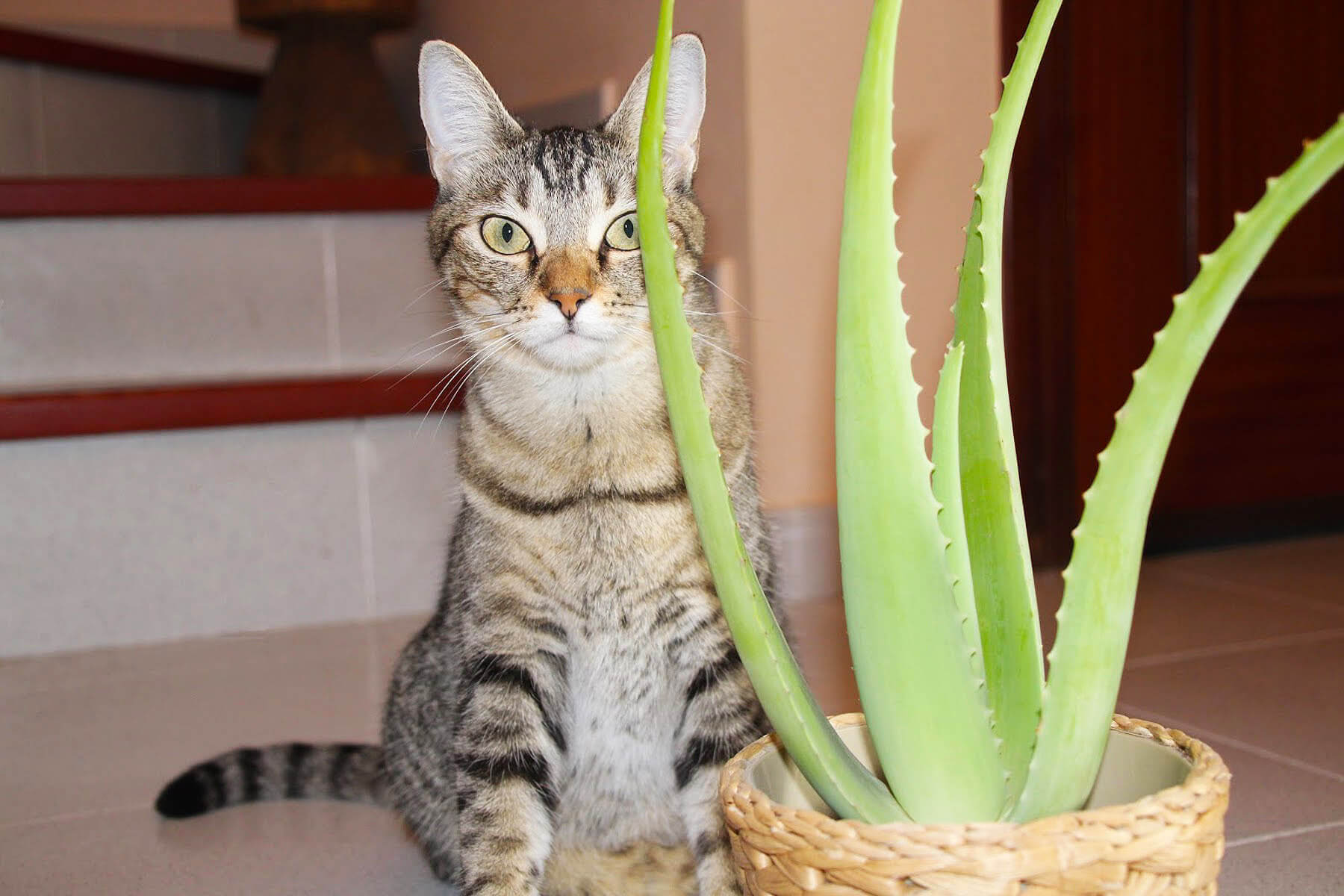Cats are naturally curious. Indoor cats in particular, who experience little variety, like to tinker with indoor plants out of boredom. However, many supposedly harmless plants are poisonous for the adventurous velvet paws. This includes the aloe vera plant, which despite its many uses as a remedy can be harmful to cats.
Is Aloe Poisonous or Toxic to Cats?

The aloe vera plant contains both toxic and healing ingredients. The gel inside the leaves has a cooling, anti-inflammatory effect and is suitable for internal and external use in cats.
The leaves also contain the toxin aloin, which can lead to severe poisoning of the cat. The cat must therefore never nibble on the leaves of the aloe vera plant, but only be treated with the extracted active ingredient.
Aloe Vera as a Remedy for Cats
The aloe vera plant, also known as the desert lily, is a well-known remedy. The desert plant is able to store water. Therefore, the cosmetic industry uses the juice contained in the fleshy leaves of the plant as a moisturizer.
In addition, the plant contains important nutrients and vitamins as well as pain-relieving salicylic acid. The numerous active ingredients help people and pets against skin injuries, insect bites, burns, and digestive problems. However, only the jelly-like juice from the leaves, also known as aloe vera gel, is used. Aloe vera gel can be used in different ways in cats:
- The gel from the aloe vera plant has a cooling and pain-relieving effect on small skin injuries and insect bites in cats.
- As a feed additive, aloe vera can strengthen the cat’s immune system thanks to the vitamins and nutrients it contains.
- The cooling, the anti-inflammatory gel has a supportive effect against inflammation of the gums (gingivitis).
- An internal application of aloe vera supports the gastrointestinal tract and helps the cat, among other things, with digesting hair during the change of coat.
- Thanks to its moisturizing effect, aloe vera ensures a well-groomed, shiny coat and healthy skin in cats, for example in the case of eczema.
Toxic Components of the Aloe Vera Plant
When used as a remedy, only pure aloe vera gel is used. However, the leaves of the aloe vera plant also contain the substance aloin. Aloin is toxic to cats and can cause severe symptoms of intoxication. The plant’s fleshy leaves are also surrounded by thorns that cats can injure themselves on. If the house tiger is not deterred by the thorns and nibbles on the aloe vera plant, it will ingest the poisonous aloin. For this reason, cats are prohibited from eating aloe vera.
Only the filtered gel from the leaves that have been freed of the toxins may be used as a remedy or as a feed additive.
Symptoms of Aloe Vera Poisoning
If the cat ingests the toxic aloin, the following typical symptoms of poisoning can occur:
- Diarrhea up to bloodred diarrhea;
- Nausea and vomiting;
- Cramps;
- Injuries and irritation of the oral mucous membranes;
- Paralysis;
- Kidney damage.
If symptoms of poisoning occur, take your cat to the veterinarian immediately.
